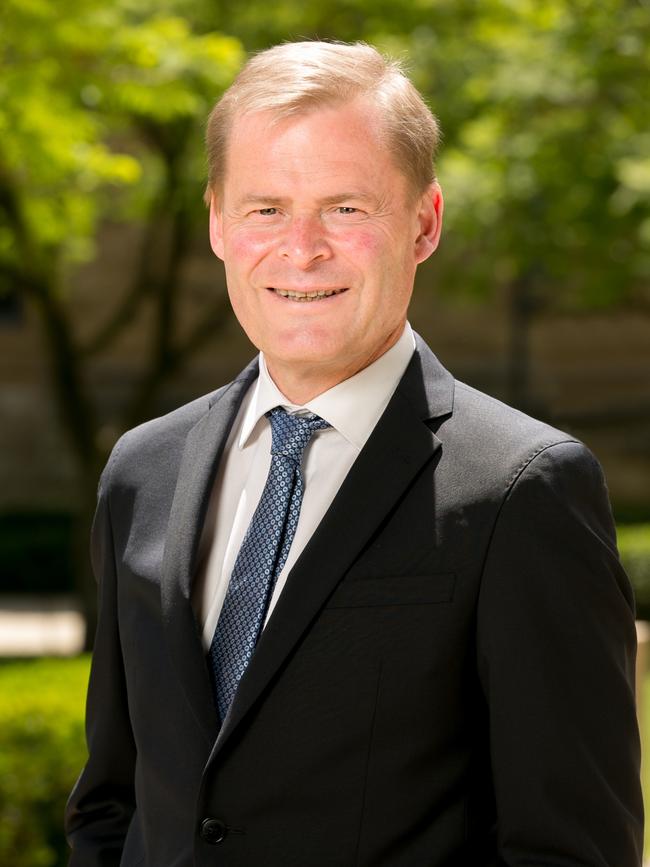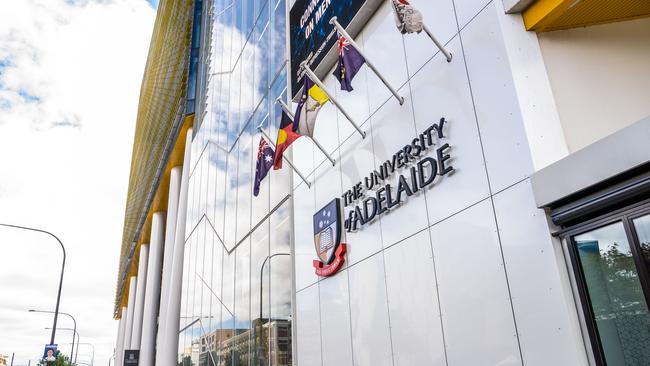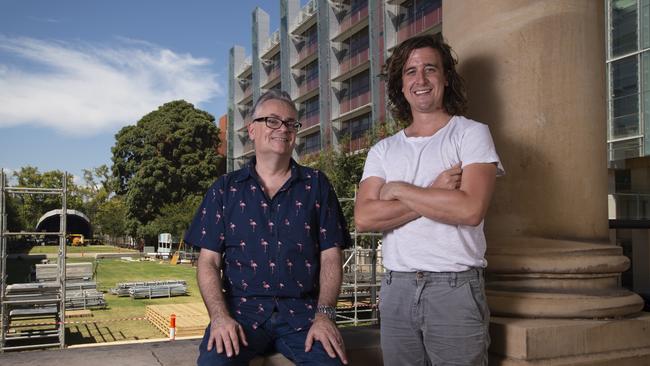Artificial intelligence, big data and tearing down the fences at Adelaide University
The rapid pace of technological change is the driving force behind major curriculum changes planned for the state’s high schools and its oldest university.
SA News
Don't miss out on the headlines from SA News. Followed categories will be added to My News.
- Full list: Almost 15,000 university offers for SA students
- All the stories in our education data series
- What Australia needs to do to future-proof the Defence forces
Read below: Revamp for Year 12 research project
The rapid pace of technological change is the driving force behind major curriculum changes planned for the state’s high schools and its oldest university.
The SACE Board has proposed new Year 12 subjects such as cybersecurity, space and advanced technologies where the content would be provided by emerging industries, ensuring they are always up to date.

Subjects in major technological shifts such as artificial intelligence and “big data” could become compulsory for Adelaide University undergraduates, Vice-Chancellor Peter Rathjen says.
Ahead of today’s release of the university’s strategic plan for the next decade, Prof Rathjen, pictured, also told The Advertiser he plans to tear down the fences around the North Tce campus as a sign of the institution’s desire to become a hub of community activity.
The plan proposes the creation of three “colleges of expertise”. The technology one would focus on the transformational impact of artificial intelligence and big data. The society college would explore policy development needed to accompany technological change, and the third would look at sustainability.

Researchers from across the university would have access to college expertise to inform their own work. And all students would at least have access to courses run by the colleges.
Prof Rathjen said all students should be exposed to the major “vectors of change” sweeping society.
He forecast a “dramatic” expansion of overall student numbers, subject to the uncertainties of Federal Government policy, with the proportion international students likely to grow from 30 per cent to 40-45 per cent.
After the Royal Croquet Club’s success at bringing large crowds to the university, the plan signals an intent to host a year-round calendar of arts and other events to welcome the public and keep students on campus more.

But at the same time, rapid growth in online students is also expected.
There will be two new history walks through the city campus – one on the main north-south path devoted to Kaurna heritage, while an east-west route will tell the history of the university. Prof Rathjen said the uni’s large art collection, largely hidden away at present, would be displayed around campus.
He said the uni aimed to broaden its student cohort through more scholarships and different entry methods less reliant on the ATAR.
The strategic plan will inform the uni’s next building masterplan expected later this year.
Change to vexed research project
A revamp of the SACE Research Project and new industry-driven Year 12 subjects in cybersecurity, the space business and advanced technologies are among key changes planned for the state’s senior secondary certificate.
The Research Project will no longer be a compulsory Year 12 subject under the SACE Board’s response to last year’s State Government-commissioned, independent review. But students will still have to complete it at some point in their senior schooling – either as a 10-credit (half-year) subject in Years 11 or 12 or as an optional full year (20-credit) version in Year 12.
The Research Project allows students to look at any topic of their choosing in depth. It has been criticised for being compulsory and limiting students’ other subject choices, and for suspicions some parents help too much. But Flinders University research has found it was a better predictor of success at uni than the ATAR.
SACE Board chief executive Martin Westwell said one issue with the current Research Project was that it was so broad some students found it hard to choose a topic. As such, the revamped version would have more defined options including entrepreneurial or community activism projects and those tied directly to vocational studies and career pathways.
“While we have received significant correspondence from schools and teachers who recognise how valuable the Research Project is for our students, we know from the findings of the SACE review that the current subject is not universally valued and needs to change,” Prof Westwell said.
Subject to extra funding, which would be needed for all planned changes to the SACE, a pilot of the new Research Project would be run in 2020 with a view to a full rollout in 2022.
The SACE Board also wants to introduce new “industry framework subjects” at Year 12.
The content would be largely determined by emerging industries, the idea being that in rapidly evolving areas, it would cut the lag time for curriculum to catch up with industry needs. Subjects could include cybersecurity, the space industry, ‘industry 4.0’ - the fourth industrial revolution covering artificial intelligence, advanced manufacturing, and the internet of things - and healthy ageing technology. Prof Westwell said “two or three” could be offered in any given year.
“I don’t know anybody else in the world who’s doing anything quite like this,” he said.
The SACE Board aims to embed, in assessable ways, “capabilities” such as entrepreneurial, critical and creative thinking, personal and social communication, ethical and intercultural understanding, literacy and numeracy, and ITC across all SACE subjects.
Prof Westwell wants to tackle the review’s recommendation of “fewer but deeper” tasks. He said Year 12 students were “definitely over-assessed”.


